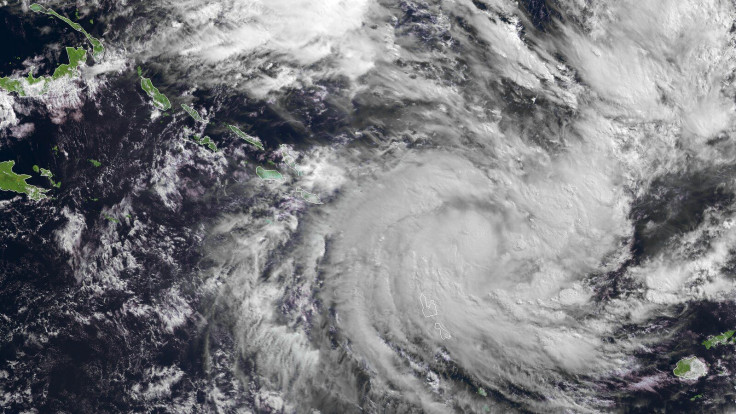Climate Change: Strong Pacific Cyclones Speeding Up Kuroshio Current, Intensifying Global Warming
KEY POINTS
- Researchers found that stronger tropical cyclones intensify global warming
- Strong tropical cyclones and mesoscale ocean whirlpools speed up the Kuroshio Current
- Kuroshio Current transports warm, tropical waters northward toward Japan
Increasingly powerful tropical cyclones in the Northern Pacific Ocean may be fueling a powerful north-flowing ocean current, helping to boost the amount of heat it carries to northern latitude.
The north-flowing ocean current or the mass movement of water from the tropics is known as the Kuroshio Current, also known as Black or Japan Current. The Kuroshio Current is a swift, broad ocean current originating from the east coast of the Philippines transporting warm, tropical waters northward toward Japan.
According to Phys.org, researchers found evidence that the Kuroshio Current is strengthening due to intensifying tropical cyclones and could warm the planet further.
Researchers have long predicted that climate change would increase the intensity of tropical cyclones around the planet. According to a Science News report, there have been several studies and observational data that suggest that the supercharging of storms is already happening.
However, the influence of tropical cyclones to the climate is not generally included in most studies about climate. Per Science News, Yu Zhang, a physical oceanographer at the Ocean University of China in Qingdao, said that "the interaction of these relatively short-lived storms with a calm, quiescent ocean has been considered insignificant in the long-term climate picture."
Science, a paper published by a team of researchers shows that stronger than normal cyclones are increasing the strength of the eddies (ocean whirlpools) that push the current, resulting in a faster-moving current and more warm water moving north.
Zhang noted that the Pacific Ocean is full of energetic mesoscale eddies, which swirls spanning from 10 to 100 kilometers across and can extend more than 1,000 meters deep. The existence of eddies makes it a key player in mixing up and redistributing the ocean's heat, salt, and nutrient content.
The combination of tropical cyclones and mesoscale eddies can lead to dramatic climatic impacts, Zhang noted per Science News. Researchers further suggest that stronger-than-normal cyclones are the result of global warming.
Additionally, the eddies contribute to the speeding of the Kuroshio Current. According to Science News report, Zhang and her colleagues suspected that the changes in the spin of ocean eddies in the region—linked to the intensification of North Pacific tropical cyclones—were helping to keep the Kuroshio speeding along.
The researchers say that the speeding of Kuroshio Current could make a drastic effect on global warming by transporting more heat to higher latitudes, helping to warm them even more. The warming could then drive stronger cyclones that could in turn speed up the current more in a continual cycle.

© Copyright IBTimes 2025. All rights reserved.





















